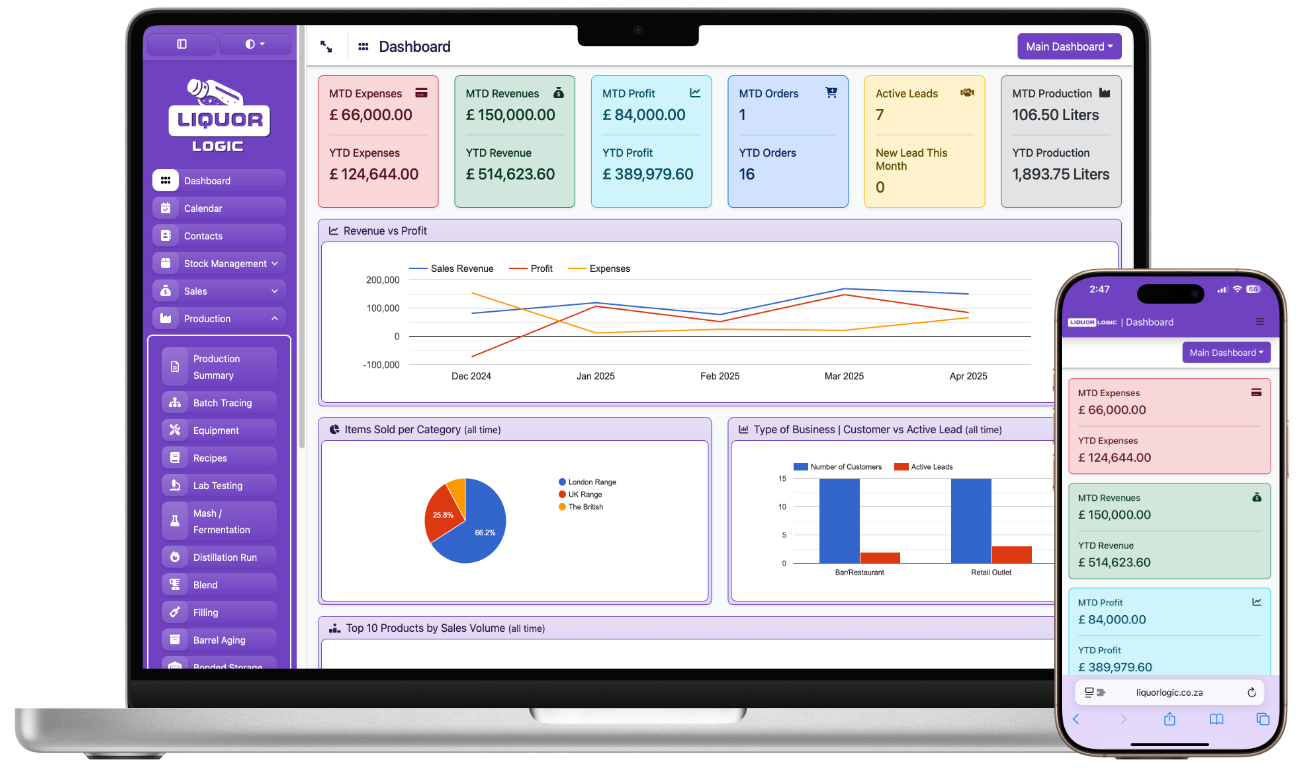Mastering Excise Reporting and Compliance in the Alcohol Industry

Explore the challenges of excise reporting for alcohol producers and learn how modern software ensures accuracy, compliance, and efficiency.
Mastering Excise Reporting and Compliance in the Alcohol Industry
Excise duties and regulatory compliance are critical yet often challenging aspects of alcohol production. Whether managing a winery, distillery, brewery, or cidery, failing to comply with local and national excise laws can result in severe financial penalties, legal issues, and reputational damage.
Understanding the Complexity of Excise Reporting
Excise laws vary by country and product type, making compliance complex. Producers must account for:
- Different tax rates for spirits, wine, beer, and cider.
- Production volumes and batch sizes.
- Raw material inputs, yields, and losses.
- Bonded storage, transfers, and contract production.
- Detailed record-keeping for audits and inspections.
Many producers rely on manual spreadsheets or disconnected systems, which increases the risk of errors, delays, and costly penalties.
How Liquor Logic Simplifies Excise Management
Liquor Logic offers a comprehensive solution for excise reporting:
- Automated calculations: Duties are calculated automatically based on production volumes, batch types, and ingredient yields.
- Detailed excise breakdowns: ExciseDetailModel tracks spirits, beers, wines, and ciders, including intermediate products and by-products.
- Bonded storage management: Track storage locations, product transfers, and contract batches effortlessly.
- Historical reporting: Generate reports for audits or internal reviews without manual effort.
- Compliance alerts: Notifications for upcoming submissions, discrepancies, or storage limits.
Best Practices for Accurate Excise Reporting
To ensure accuracy and compliance, producers should:
- Implement end-to-end tracking from raw ingredients to finished goods.
- Use software to calculate ingredient yields and batch losses precisely.
- Maintain a centralized system that integrates production, inventory, and sales for seamless reporting.
- Regularly reconcile actual inventory with production logs and storage records.
- Train staff to understand excise requirements and software workflows.
Example: Multi-Batch Distillery Operations
A distillery producing several spirits simultaneously faces challenges in calculating excise on overlapping batches. Liquor Logic simplifies this by:
- Assigning unique batch IDs and tracking each step of production.
- Automatically calculating excise based on the exact spirit yield and alcohol percentage.
- Generating reports for submission to tax authorities, including bonded storage details and transfer logs.
- Providing real-time dashboards to management for planning and forecasting.
The Competitive Advantage
Excise compliance is not only a legal necessity but also a business advantage. Accurate reporting allows:
- Faster audits and inspections without disruptions.
- Improved cash flow by avoiding penalties and overpayments.
- Better production planning and resource allocation.
- Enhanced reputation with regulators and customers alike.
Conclusion
Excise reporting and compliance in the alcohol industry are complex but manageable with the right tools. Liquor Logic offers a complete solution, enabling wineries, distilleries, breweries, and cideries to automate calculations, maintain accurate records, and focus on growth and innovation while remaining fully compliant.
Back